According to the National Restaurant Association, there are over 250,000 American military veterans working throughout the food industry, and about 14% of veterans working in restaurants hold supervisor positions. The role of veterans in the industry is essential, and many transitioning from service to civilian life are choosing to take on the great adventure — that is, owning their own restaurant. But like any other financial endeavor, veterans need to sort through options like VA loans and their alternatives as they embark on the new challenge of restaurant ownership.
Nevertheless, while being a restaurant owner is a challenge no matter what your background, there are aspects of owning a restaurant that veterans particularly connect with off the bat. Those experiences put them into the position to be very successful in what’s unquestionably a very competitive industry.
Veterans delegate more effectively.
How does one define success in the military? For those who’ve moved up the ranks, it takes being a leader, knowing how to work with people, and bringing out the best skills of everyone in your unit. A problem shared by many restaurant owners is that they try to be and do everything themselves for their business.
If a pot needs cleaning, they clean it — even if the dishwasher is right there. If an omelet needs flipping, they’ll jump right in, even if that means getting in the way of their line cook. And by jumping in, they’re actually setting aside very specific tasks that only an owner or manager is best suited to address.
While a willingness to get their hands dirty is important, some owners are hesitant to let the people they’ve hired to do their own jobs themselves. Because veterans have military training that emphasizes how crucial teamwork is to the success of any goal, restaurant owners with military service are more inclined to delegate tasks.
By trusting their employees (including the managers) to do their jobs as they were trained, owners are then able to focus on the important tasks that only the owner can do.

Veterans understand structure.
Every owner or manager knows that there’s also a certain amount of routine that goes into running a restaurant. Specific tasks must be checked off every day in order for things to run smoothly and to keep your patrons happy. Veterans who miss the structure of military service can find the day-in, day-out elements of running a restaurant familiar, if not relaxing.
That being said, this job still keeps you on your toes. There’s always something new happening, whether it’s a recipe your chef wants to try or an opportunity to chat with one of your first-time guests. That flexibility and versatility of restaurant management requires strong problem-solving skills, something veterans know quite a bit about.
Many veterans already have food training.
And for many veterans, managing a restaurant after coming home from service makes even more sense if they’ve already been exposed to food training during service. Soldiers need to eat, and there are thousands of food service roles within each branch of the military.
Men and women who leave active service after working as culinary specialists have a lot of direct food preparation and kitchen leadership experience. That experience could easily be put towards owning their own restaurant in the transition to post-service.
Just ask Byron French, owner of Rewards Network participating restaurant Basil Thai & Sushi in Jacksonville, Florida. French became the owner of Basil a little over a year ago, and he credits his military background along with his wife’s experience as a restaurant manager as a winning combination in their business’ success.
“I served 26 years in the Navy,” says French, “almost all of it in food service particularly. So getting started in a restaurant was really easy for [my wife and I]. Understanding all the guidelines and rules was pretty much systematic for us and allowed us to be able to have a smooth transition into it.”

VA loans and other resources for veterans
If you’re unsure how to get started as a restaurant owner, or maybe you’re a veteran who doesn’t know how to take their restaurant to the next level, there are some resources available to you.
Try checking out the VA’s Office of Small & Disadvantaged Business Utilization, which offers outreach programs for veteran entrepreneurs. The OSDBU includes the option to get certified as a veteran-owned business, for instance. You can also get connected to networking opportunities with fellow veteran-owned businesses through the Direct Access Program.
The National Restaurant Association also has a Military Foundation that hosts job listings and other career resources for veterans in or entering the industry. In fact, as an organization, they engage food-savvy veterans even before leaving service through the annual Military Foodservice Awards, recognizing excellence in operations across all branches.
There are also many other forms of support for veteran-owned businesses, including VA loans, grants and other financial funding. The Small Business Association (SBA) has extensive information on VA loans and special funding available for American veterans. And the opportunity doesn’t stop there.
Rewards Network is proud to work with veterans and veteran-owned businesses to see the dreams of a successful restaurant come true for you, supporting your marketing and financial needs. Merchant cash advances are not VA loans, but work more comfortably with the ebb and flow of your business.
Want to see how much financing you can get started with today?






